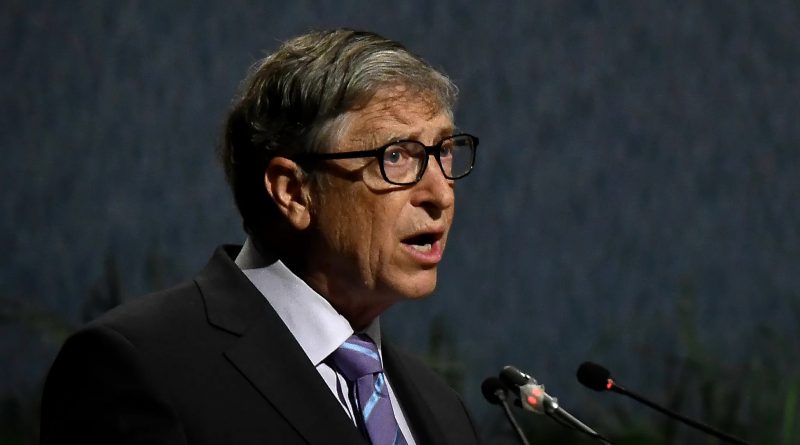Bill Gates and PAHO Explore Affordable Access to Weight-Loss Drugs for Developing Nations
London – In a move that could reshape global health access, philanthropist Bill Gates and the Pan American Health Organization (PAHO) are exploring ways to make life-changing weight-loss drugs more affordable and accessible to people in low- and middle-income countries.
The discussions signal growing momentum toward tackling the global obesity epidemic through equitable innovation and international cooperation.
Weight-loss drugs such as Novo Nordisk’s Wegovy and Eli Lilly’s Mounjaro have revolutionized obesity management in developed nations, but their high costs—often hundreds of dollars per month—have kept them out of reach for millions in developing economies.
Recognizing this imbalance, both Gates and PAHO have expressed interest in identifying solutions that make these breakthrough treatments more widely available.
A New Frontier for Global Health Equity
In a recent interview, Bill Gates emphasized the importance of bridging the affordability gap in medical innovation. While obesity is not yet a primary focus area for the Bill & Melinda Gates Foundation, he acknowledged that its long-term health consequences make it an increasingly urgent issue, particularly in low-income regions where healthcare systems already face mounting challenges.
“The Gates Foundation has always taken proven medical innovations and figured out how to make them super, super cheap so they can reach everyone in the world,” Gates said. “If there’s a pathway to bring down costs and expand access to these drugs, that’s something we’d seriously look at.”
The Foundation is already collaborating with Indian pharmaceutical manufacturer Hetero to develop affordable versions of a new HIV prevention drug, priced as low as $40 per year for lower-income countries. This model of partnership—combining innovation, generic development, and global distribution—could serve as a blueprint for future efforts in obesity care.
PAHO’s Collective Procurement Approach
Dr. Jarbas Barbosa, Director of PAHO, confirmed that the organization is examining the potential of using its Strategic Fund, a pooled procurement mechanism that allows its 35 member states to purchase essential medicines in bulk at lower prices.
This mechanism has already been successful in improving access to vaccines and critical drugs across Latin America and the Caribbean. Applying the same strategy to weight-loss medicines could help significantly reduce costs and enable middle-income nations to address rising rates of obesity and related diseases such as diabetes and cardiovascular illness.
A Growing Health Challenge in Developing Regions
According to global estimates, around 70% of the world’s one billion people living with obesity are in low- and middle-income countries. These regions face dual burdens—malnutrition and obesity—both of which strain healthcare systems and lead to higher risks of chronic diseases.
Experts believe that equitable access to next-generation weight management therapies could help reduce long-term healthcare costs, improve quality of life, and ease the social and economic impacts of obesity. The World Health Organization (WHO) recently estimated that the economic toll of obesity and overweight could reach $3 trillion by 2030 if left unaddressed.
From next year, semaglutide, the active ingredient in Wegovy, will lose patent protection in several countries including China and India, opening the door for generic manufacturers to produce low-cost alternatives. This development aligns with the Gates Foundation’s strategy of supporting generic competition to ensure life-saving drugs become affordable for all income levels.
The Foundation is also conducting early-stage research on how these treatments could improve health outcomes for women with gestational diabetes, a condition increasingly linked to obesity and limited healthcare access in developing nations.
A Global Step Toward Inclusive Healthcare
While Gates remains focused on tackling diseases like malaria and HIV—the primary causes of death in low-income countries—his recognition of obesity as an emerging global health threat highlights a shift in public health priorities. By combining philanthropic expertise, international cooperation, and market-based affordability strategies, initiatives like this could redefine how the world approaches chronic disease prevention.
PAHO’s experience in bulk procurement and the Gates Foundation’s innovation-driven funding model present a powerful partnership opportunity to democratize access to advanced health solutions.
As Gates put it, “When science delivers powerful new tools, it’s our responsibility to make sure those tools don’t stay locked away for the few—they should work for everyone, everywhere.”



